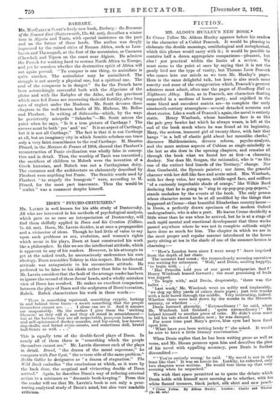BARBARY.
MR. MACCALLUM Scorr's lively new book, Barbary : the Romance of the Nearest East (Butterworth, 12s. 6d. net), describes a winter tour in Algeria and Tunis, with special insistence on the past and on the future of these lands. The author was deeply impressed by the ruined cities of Roman Africa, such as Lam- baesis and Thamugadi, at the foot of the mountains, or Caesarea (Cherchel) and Tipasa on the coast near Algiers. He admires the French for working hard to restore North Africa to Europe, and yet he wonders whether the destructive spirit of Africa will not again prevail. " To conquer is one thing, to assimilate is quite another. The assimilator may be assimilated. The struggle is not merely a physical one, but a spiritual one. The soul of the conqueror is in danger." So far the French have been astonishingly successful both with the Algerians of the plains and with the Kabyles of the Atlas, and the provinces which once fed Rome are recovering their old fertility, after long ages of neglect under the Moslems. Mr. Scott devotes three chapters to the well-known books of Mr. Hichens, Mr. Belloc and Flaubert. In writing of Salammbo—which, by the way, he persistently misspells " Salambo "—Mr. Scott misses the point when he says, " Is it a true picture of Carthage ? The answer must be both yes ' and no.' It is an aspect of Carthage, but it is not all Carthage." The fact is that it is not Carthage at all, but an imaginary city in which Semitic scholars can trace only a very faint resemblance to the real Carthage. M. Maurice Pezard, in the Mercure de France of 1908, showed that Flaubert's reconstruction of Punic civilization was wholly false in concep- tion and in detail. Thus, the worship of Tanit was travestied ; the sacrifices of children to Moloch were the invention of a Greek historian, and Moloch was not a Carthaginian deity. The costumes and the architecture so elaborately described by Flaubert were anything but Punic. The Semitic words used by Flaubert " to stupefy the bourgeois " were, according to M. Pezard, for the most part inaccurate. Thus the would-be " realist " was a romancer despite himself.










































 Previous page
Previous page